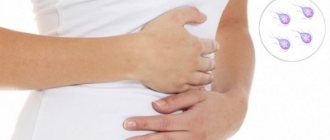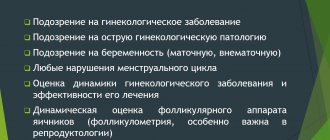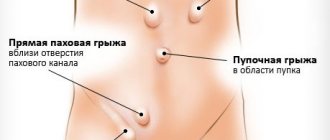"Magic" pills
There is a group of drugs collectively called non-steroidal anti-inflammatory drugs (NSAIDs), which we all have taken at least once in our lives, and many regularly. These are drugs that have analgesic, anti-inflammatory and/or antipyretic effects. Examples include Aspirin, Nurofen, Nice, Ketanov, Ketoprofen and others. Considering the “magical effects” of their action - relieving inflammation, pain and fever - they are prescribed by almost everyone, everyone, always. Prescribed by traumatologists, rheumatologists, therapists, ENT specialists, dentists. Plus, they can be purchased completely freely at any pharmacy. But, along with the “magical properties”, these drugs have a number of side effects that can be divided into 2 groups: cardio risks and gastro risks. Actually, gastrorisks will be discussed in this article.
NSAID gastropathy
In the scientific literature, this problem is called “NSAID gastropathy.” The term was first proposed in 1986 to distinguish specific damage to the gastric mucosa that occurs with long-term use of NSAIDs from classic peptic ulcer disease.
The difference between NSAID gastropathy and peptic ulcer disease can also be traced by the affected area. Most often, ulcers can be seen in the stomach, and not in the duodenum. Plus, the changes are more common in older people than in younger people.
Why does bloating occur in healthy people?
Eating large quantities of potatoes can cause bloating.
The main causes of bloating in healthy people are poor diet and antibiotic use. It is not recommended to drink carbonated drinks. When they are consumed, short-term bloating occurs even in healthy people.
Consumption of certain foods containing large amounts of fiber causes fermentation processes, for example:
Some numbers
Some statistics. In the UK, approximately 24 million NSAIDs are prescribed per year. 70% of people over 70 years of age take NSAIDs once a week, and 34% daily. In the United States, up to 6 billion worth of NSAIDs are sold annually. As a result, the risk of developing gastrointestinal bleeding (GIB) increases 3–5 times, perforation by 6 times, and the risk of death from complications by up to 8 times. Up to 40–50% of all cases of acute gastrointestinal tract infections are associated with NSAIDs.
This problem is also relevant in our country, for example, according to the Scientific Center for Cardiovascular Surgery named after. A.N. Bakulev, out of 240 patients taking aspirin daily, even in small doses, gastroscopy revealed lesions of the stomach and 12 p.c. in 30% (of which ulcers - in 23.6%, erosions - in 76.4%). A similar picture was observed among colleagues from the All-Russian Research Institute of Rheumatology of the Russian Academy of Medical Sciences - in 2126 patients taking NSAIDs without “covering” (protection) of the stomach, erosions and ulcers of the gastroduodenal zone were found in 33.8% of cases. These are very impressive and dramatic numbers of complications from taking NSAIDs, considering the number of people using these drugs in developed countries.
Herbal remedies
Carminative herbs and other folk remedies can reduce the amount of gases in the intestines and relieve the discomfort associated with their excessive formation.
Dill fruits
Dill is the most popular remedy for bloating, which is applicable even for babies. In addition to reducing gas formation, this plant has anti-inflammatory and antispasmodic effects, improves digestion processes and reduces fermentation processes, which result in the release of gas.
How it works?
How do these drugs work in our stomachs? Everything is very simple, the negative impact is realized due to the imbalance of defensive and aggressive forces. We have a number of defense mechanisms in our stomach that allow us to withstand the onslaught of aggressors. Among the latest:
- An acid whose pH balance is close to that of battery acid
- Bile and pancreatic juice, which can be thrown into the stomach.
- A number of medications.
- Alcohol and nicotine.
- Irritating food components (spices, spicy foods, etc.)
- Helicobacter pylori infection and so on.
The stomach is protected due to a thick layer of mucus and bicarbonates that neutralize acid, adequate blood supply, and the ability to regenerate very quickly. When we use NSAID drugs, the balance of forces changes towards aggressive mechanisms and damage occurs to the mucous and submucosal layer of the stomach and duodenum.
Alarm signals:
- Increased frequency and intensification of pain;
- Weight loss;
- Vomiting blood or coffee grounds.
In the treatment of gastritis and peptic ulcers, regular nutrition without overeating, the exclusion of irritating foods, the use of boiled, baked or lightly fried low-fat second courses, light dinners at least 2-3 hours before bedtime, the exclusion of sour juices and sweets are of great importance. The doctor prescribes an examination, diet and appropriate medications.
Diseases of the biliary system. Diseases of the biliary system in children, as a rule, are of microbial origin. Predisposing factors are a violation of the outflow of bile, which develops with dyskinesia of the biliary system.
Dyskenesia may be associated with dysfunction of the sphincter apparatus, blockage of the ducts or their compression. Subsequently, the presence of an inflammatory process in the ducts may be accompanied by a violation of the outflow of bile.
The contractility of the gallbladder is important.
The pain syndrome is usually accompanied by dyspeptic disorders (nausea, belching, unstable stool, constipation). An important symptom is liver enlargement associated with stagnation of bile.
There are no symptoms of chronic intoxication and changes in other organs. Physical development corresponds to age. In some children, the main symptoms of the disease are liver enlargement without pain.
A good effect for improving well-being is provided by excluding too fatty, spicy, fried foods from the diet. The same applies to baked goods. Vegetable oil, on the contrary, increases bile secretion and is recommended to be consumed more often. If, in addition to the specified diet, you increase physical activity, this is often enough for recovery and well-being.
If diet and lifestyle changes are not enough, choleretic agents are used. Your doctor should recommend specific medications.
Enteritis, colitis (enterocolitis) is an inflammatory disease of the wall of the small and large intestines, characterized by abdominal pain and diarrhea syndrome.
Chronic colitis and enterocolitis are most often associated with acute infections. In this case, the pathogen that caused the disease has already lost its significance, and the dysfunction of the intestine is supported by those morphological changes that remain after the infection.
The main clinical symptoms are abdominal pain, bloating and rumbling, impaired intestinal motility (constipation, diarrhea, or diarrhea alternating with constipation). Pain may be absent during the period of remission of the disease, but dysfunction of the intestines remains, which requires restorative treatment.
In addition, increased irritability, tearfulness, depressed mood, vascular dystonia syndrome, and a tendency to smooth muscle spasms are typical for these patients.
Rehabilitation consists of organizing nutrition according to the ability to absorb food, psychotherapy, the use of physiotherapeutic influences, and the use of astringents, enveloping, and absorbent agents. Recommendations on nutrition, daily routine, and medications can only be given by a doctor.
Diagnostics
To diagnose such changes, gastroscopy is used, which is the “gold standard”. An interesting fact is that about 40% of patients with erosive-ulcerative changes who take these drugs for a long time (more than 6 weeks) do not feel any discomfort or unpleasant, painful sensations. Stomach problems are diagnosed only when visiting other doctors, and not a gastroenterologist. And, conversely, in 40% of patients, despite the complaints they make, nothing is found.
Tablets "from the stomach"
The most popular among them are antispasmodics such as no-shpa, drotaverine and analogues. They can mask serious surgical situations called “acute abdomen”: acute appendicitis, acute cholecystitis, which need to be treated under the supervision of a surgeon, perhaps even operated on. If you relieve pain with pills, you can progress surgical pathology to an extremely dangerous state - inflammation of the peritoneum, or peritonitis, which poses a direct threat to life. And don’t forget that the much-loved activated carbon can absorb not only toxins, but also other substances, including tablets. So their effect may be reduced when taken simultaneously with an absorbent.
Link to publication: aif.ru
What to do in this case?!
The algorithm of actions for patients who do not have stomach problems and those who have a history of peptic ulcers or erosive changes is different. For the first group, when prescribing non-steroidal anti-inflammatory drugs for more than 5 days, it is mandatory to prescribe drugs from the group of proton pump inhibitors (PPIs). Such as omeprazole, pantoprazole, rabeprazole, etc. (for the entire course of treatment). For the second group, any prescriptions from the NSAID group, regardless of the duration of use, require parallel prescription of proton pump inhibitors. It is also mandatory to take a PPI for patients taking aspirin for a long time.
Psychosomatic pain.
The baby involuntarily transfers stress, communication problems, fears, conflicts at home and at school onto his body - “somatizes”. And it feels like pain in the stomach. This pain is usually not very intense; it goes away after 2-3 hours. During favorable periods of life, on holidays, while traveling, on vacation, the frequency of such complaints decreases.
Parents should note what events pain is associated with. You are obliged to make sure that the disease does not directly threaten the child’s health, even if the pain recurs from time to time, i.e. Be sure to consult your doctor. It is imperative to help the child solve his psychological problems. Talk to him, pay attention to the atmosphere in your family, teach your child ways to resolve conflicts and reduce stress, and reduce academic requirements.
Abdominal pain unrelated to pathology of the gastrointestinal tract. Infections of the urinary system often cause abdominal pain in young children, but there is no clear localization of the pain; children, as a rule, indicate the location of the pain in the navel. In addition to abdominal pain, the child has febrile fevers, symptoms of intoxication, and changes in urine and blood tests. Abdominal pain in diabetes mellitus in the case of ketoacidosis is accompanied by severe lethargy and weakness of the child, thirst, polyuria, the appearance of the smell of acetone, and an increase in blood glucose. With various systemic diseases, hemoblastoses, an increase in parenchymal organs (liver, spleen) occurs, which leads to stretching of their capsule and the appearance of nagging pain in the abdomen, while the child’s well-being suffers, the baby becomes lethargic, refuses to eat, pale skin and bruises appear and pinpoint rash on the body, changes in blood tests. In some children, usually young children, high fevers are accompanied by abdominal pain. They are usually caused by spasm of the mesenteric vessels and disappear immediately after the temperature drops to normal levels.
Please remember that any abdominal pain in a child, especially accompanied by deterioration in health, refusal to eat, or high fever, requires mandatory and immediate consultation with a doctor!
Myths that we encounter in daily practice
Myth 1. Using NSAID drugs in the form of suppositories is less aggressive for the stomach than taking pills
This is 100% a myth. The pathogenic, destructive effect of the drug is realized through the blood, delivering it through the vessels to the stomach.
Myth 2. Medicines from the group of antacids - Rennie, Maalox, Phosphalugel and H2-blockers (Ranitidine and Famotidine) can be used as “gastroprotectors”
In this case they are not effective.
Myth 3. You can't take proton pump inhibitors regularly
The fact is that if an elderly person has been prescribed an anti-inflammatory drug for life, it is absolutely pointless to prescribe gastroprotection for a month. In such cases, medications should be taken strictly in parallel.
Myth 4. Food products (jelly, etc.) can act as “gastroprotectors”
We will leave this myth as absolutely fantastic without comment.
How to choose a medicine
In fact, the most important point is which medications we take. In the figure you can see the scale of aggressiveness of various drugs from the NSAID group in relation to the stomach.
The most aggressive drugs are Aspirin, Ketorolac, Piroxicam, Indomethacin. If possible, it is recommended to use selective drugs that have minimal gastrointestinal risks. Their use is always more desirable, these include Celecoxib and Rofecoxib. But despite their relative safety, they should be prescribed strictly according to indications by the attending doctor, do not forget about this.









